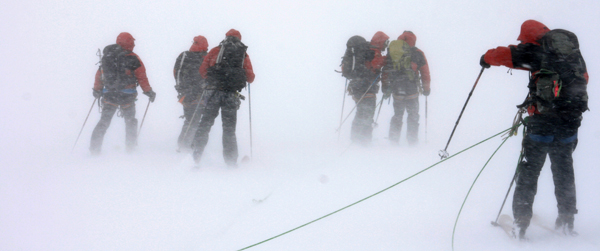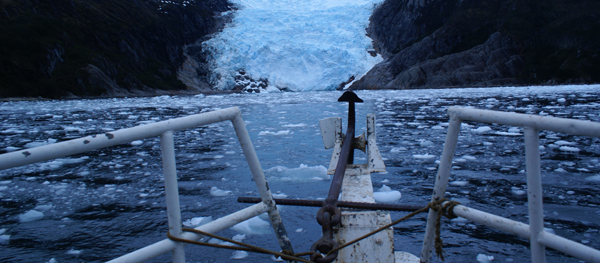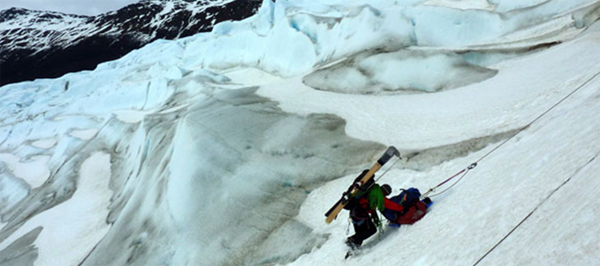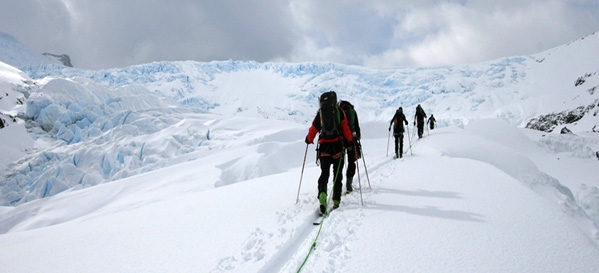The Darwin Research project
The Darwin research project in management is aiming at understanding how do leaders and team members daily interact and make decisions in practice within extreme contexts,“where risks of severe physical, psychological or material consequences (e.g., physical harm, devastation or destruction) to organizational members or their constituents exist” (Hannah et al., 2009:897). This project, extending the ANR DARWIN, consists of international researchers and is based at the Ceros research group, Paris Ouest Nanterre La Défense University, France.
In such an environment, individuals cannot rely on their daily routine, as they are required to build their knowledge and modes of organizing in action. Their capacity to make quick decisions and coordinate their actions under urgent conditions, while at the same time assuring their safety, becomes critical. The key stakes come to the fore more clearly (Huff, Neyer and Möslein, 2010) and contain substantial lessons for the management of contemporary organizations within highly unexpected, uncertain and risky environments (Weick & Sutcliffe, 2007).
Studying teams within these environments is challenging. Researches have been previously conducted in order to understand how individuals cope with risky and unexpected situations (the Mann Gulch Disaster: Weick, 1993; Challenger and Columbia space shuttle accidents: D. Vaughan, 1997; Laroche and Saussois, 2003; Edmondson et al., 2005; the Everest expedition in 1996: Roberto, 2002; Kayes, 2004, 2006; Tempest et al., 2007, Elmes & Frame, 2008). However, these studies focused mainly on accidents and dramatic episodes and have been based on secondary data collected after the episode. The details of how individuals cope in practice with such extreme contexts and how it evolves along the time have not yet been extensively addressed.

Our research questions
We aim at filling this gap by answering the following questions:
- How do leaders organize teamwork on a day-to-day basis in order to ensure the survival of their organization under extreme context?
- What are team members doing and saying, how are they coping with these environments?
- How do they mobilize their skills and knowledge and build new competences around achieving their assigned goals?
- How do they interpret their environment, how do they improvise and make high stake decisions?
The originality of this “DARWIN” research project lies in proposing a new approach to performing a detailed examination, both in situ and in real time, of the actions and interactions performed by individuals facing extreme situations.



The ANR DARWIN
The first step of this research program was conducted within the framework of a project that has received financial support from France’s National Research Agency (ANR DARWIN, ANR09-BLAN-0341-01).
This program entailed conducting a field study on a French mountaineering expedition whose objective was to accomplish the first-ever crossing of the Cordillera Darwin range in Tierra Del Fuego Island, Patagonia: « Un rêve de Darwin, www.unrevededarwin.com)
A mountaineering expedition, as well as a polar expedition, is a project-based organization (Hällgren, 2010). An isolated team of professional alpinists pursuing their specific objectives within a specific time-space frame could be viewed as “a total situation” (Goffman, 1961). This setting is appropriate to explore processes such as teamwork, leadership and decision-making within extreme (Musca and al., 2014 ; Giordano and Musca, 2012; Aubry and al., 2010, Rix-Lièvre and Lièvre, 2010).
An innovative methodological approach allowed collecting data over the course of the expedition’s various phases (2008-2011), combining a longitudinal case study with a real-time in situ ethnographic study over the 6-week of the expedition itself.
The analysis has given rise to publications, papers and chapters of books, in addition to providing the opportunity to collaborate with international researchers.

